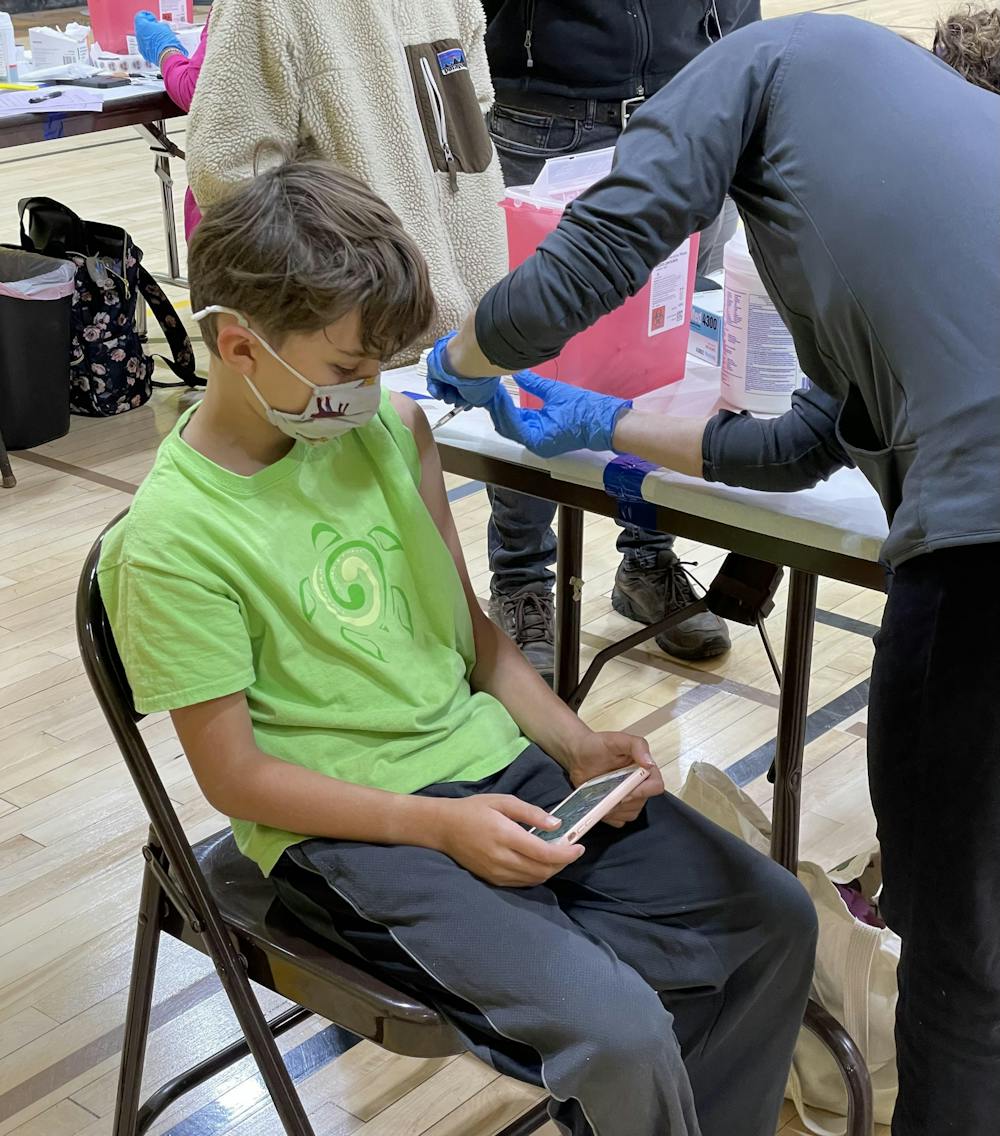The pediatric COVID-19 vaccine for children from age 5 to 11 years old was approved by the Centers for Disease Control and Prevention (CDC) on Nov. 2 and has since been distributed in hospitals and pharmacies nationwide. The News-Letter interviewed School of Public Health faculty Dr. Kawsar Talaat and Tamar Mendelson to discuss the impact this will have on children's wellbeing.
Although adults have had more severe COVID-19 outcomes than children, substantial amounts of children have been infected and hospitalized. According to the American Academy of Pediatrics, as of Nov. 4, over 6.5 million children have tested positive for COVID-19 since the beginning of this pandemic. Furthermore, according to the CDC, the spread of the Delta variant led to a surge of COVID-19 cases in children starting in the summer. Children infected with COVID-19 can experience long-term complications in which symptoms can last for months, such as multisystem inflammatory syndrome.
Vaccinations, along with other precautions, can effectively add a layer of protection for children’s health and reduce the number of children infected by COVID-19. The Food and Drug Administration has authorized the Pfizer-BioNTech vaccine for children from ages 5 to 11. It is administered in a two-dose series 21 days apart with a 10-microgram dose.
During an interview with The News-Letter, Talaat, a pediatrician and associate professor of international health, commented on how pediatric vaccines could make a difference in children’s school life and family life and possibly bring children’s life to normalcy.
“[The vaccine] makes a huge difference to kids’ lives. It is one more tool, an incredibly powerful tool to allow kids to stay in school, to do their normal activities [and to allow] families to see each other,” Talaat said. “[The vaccine] also decreases the risks for kids. If you are vaccinated and have been exposed to someone with COVID-19, you don’t have to be quarantined.”
The News-Letter also had the opportunity to discuss the mental health effects that the COVID-19 pandemic has brought to children with Mendelson, a Bloomberg professor of American health and director of the Center of Adolescent Health.
Mendelson described how the pandemic and quarantine life has led to children’s depression, anxiety and even suicidal attempts.
“This pandemic did impact young people’s mental health. [Some children] experienced the tragedy of losing a parent or a grandparent during the pandemic,” Mendelson said. “There are young people who experienced severe trauma and loss, which take a while to process and heal from.”
Mendelson added that it is crucial for parents, schools and pediatricians to be aware of potential mental health needs that young people have and try to address those needs with appropriate support and services.
Talaat further addressed how vaccines would relieve children’s stress and anxiety.
“Teenagers and children's mental health probably suffered tremendously from the [pandemic], when education is remote and kids can’t do their normal activities,” Talaat said. “Getting the vaccine and being protected that way would be a great benefit for kids. It allows them to go to school and stay in school and to not worry about catching COVID — and not to worry about bringing COVID to home.”
Currently, the vaccine is available in numerous pediatrician offices, federally qualified health centers and local pharmacies. However, vaccine distribution still raises some concerns because some children have less access to health care or lack designated pediatricians.
In response, Talaat suggested some methods that could ensure equity and safety in vaccine distribution.
“One of the best ways [to distribute vaccines] is to have community vaccination clinics in school because that is a safe place for kids already. Pediatrician offices are also another way to distribute vaccines,” Talaat said. “[It is important] to make sure there are multiple different settings so people have flexibility.”





